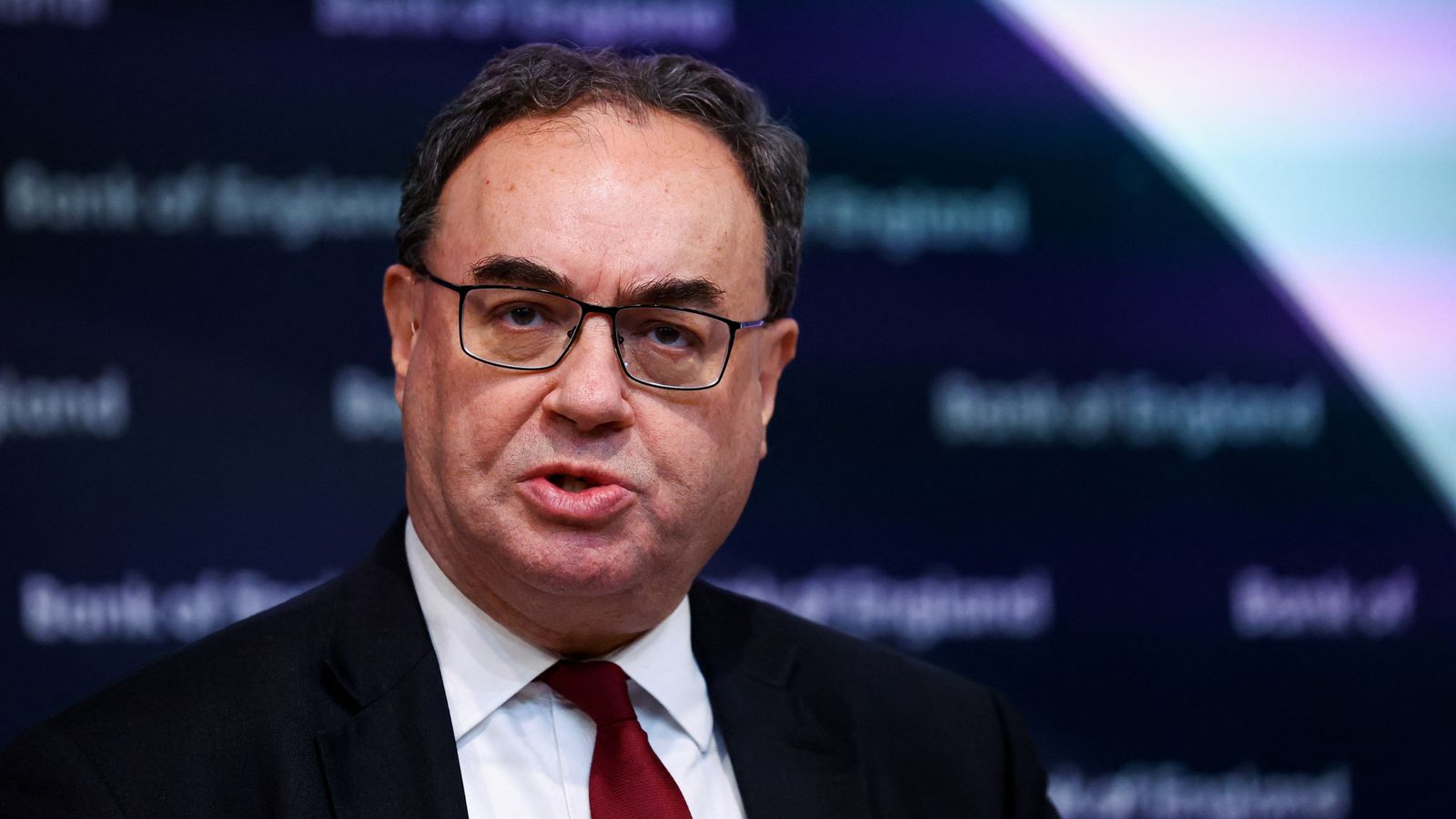One of the members of the Bank of England’s rate-setting Monetary Policy Committee has voted for a cut in its base-level interest rate for the first time since the pandemic, as Britain’s central bank forecast that inflation could be down at its 2% target within a few months.
The Bank opted to leave borrowing costs on hold at 5.25% in its meeting this month, but signalled that it was now edging closer to cutting them, dropping language about the potential need for further hikes from the minutes to its meeting and not pushing back against widespread expectations that it will begin cutting later this year.
Interest rate decision – live updates
In a further sign that it is beginning to consider cutting the rate, the nine-member committee was split three ways, with one member, Swati Dhingra, voting for a cut, two members voting for higher rates and the remaining six members favouring a hold.
It is the first time since March 2020 that a member has voted for lower rates, and the first time since March 2008 that the committee was split three ways over whether to raise, lower or hold.
Investors currently anticipate that the Bank will begin to cut rates in the middle of the year, reducing them to just over 3% by 2026. The Bank’s forecasts did little to dissuade them that these cuts are coming, though governor Andrew Bailey said the moment had not yet come.
He pointed to the fact that while the consumer price index measure of annual inflation is set to drop to 2% in April, it will later bounce back, mostly due to energy costs.
He said: “Today we’ve decided to hold interest rates at 5.25%. We have had good news on inflation over the past few months. It has fallen a long way, from 10% a year ago to 4%.
“But we need to see more evidence that inflation is set to fall all the way to the 2% target, and stay there, before we can lower interest rates.”
The Bank upgraded its forecasts for gross domestic product (GDP) growth in the coming years, projecting annual growth rates of 0.5% by early next year (compared with previous forecast of zero growth), 0.8% by early 2026 (compared with 0.6%) and 1.5% by early 2027.
However, it said that it expected only zero GDP growth in the final quarter of last year – implying (since the previous quarter was a contraction) that there is a near 50:50 chance of the UK facing a technical recession.
The Bank’s economists reckon that around two-thirds of the impact of higher interest rates has now fed through to the wider economy, but more than two million households are still due to see their mortgages refix to higher rates in the coming months.












